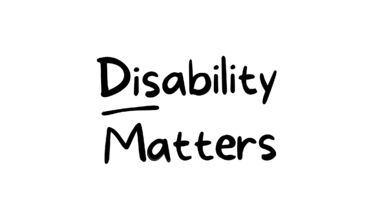Our Programme

Disability Matters is a major six-year pan-national research programme funded by a Wellcome Trust Discretionary Award that will transform health research and environments through a paradigm shift to disability as the driving subject of inquiry.
We want to challenge the 'absent presence' of disability in health and science research and cultivate a new cadre of disability and disability-positive researchers across Australia, Canada, India, Singapore and the UK.
Our work explores inclusive scholarship, disabled people’s health priorities, participatory research methodologies, positive research cultures, affirmative disability representation and early career researcher development. We will generate knowledge exchange that informs policy, strategy and practice of health research and research culture.
Disability Matters brings together researchers from Sheffield, Toronto, Delhi, Sydney, and Singapore.
We will work closely with a number of Disabled People's Organisations across all five sites to ensure that our research is led and owned by disabled people. A number of Disabled People’s Organisations (DPOs) from the five countries sit on the International Research Advisory Board (IRAB) and help guide our research. These are Disability Rights UK, Disabled People's Association Singapore Action for Ability Development and Inclusion India, Council of Canadians with Disabilities and Women With Disabilities Australia.
We also work closely with and are supported by the National Association of Disabled Staff Networks (NADSN) who are based in the UK.
Our aims
Disability Matters aims to make health research more inclusive and make sure that disabled people are the ones driving health research. We want to see what health concerns disabled people across the different countries share in common and change the way disabled people are represented in health research. We also aim to support more disabled researchers to develop their careers in health research.
There are seven phases in the programme. These are (Phase 1) Scholarship, (Phase 2) Health Priorities, (Phase 3) Methodologies, (Phase 4) Research Environments, (Phase 5) Representations, (Phase 6) Researcher Development, and (Phase 7) Transforming EDI through Disability.
Each phase will address a research question:
- How is health research, theory and scholarship transformed by an engagement with critical disability studies?
- What are the health priorities of disabled people in Australia, Canada, India, Singapore and the United Kingdom?
- What kinds of research methodologies represent disabled people and their health priorities?
- How does the presence of disability enable more inclusive health research environments?
- In what ways can we reimagine representations of disability in health research?
- How do we build a new generation of disabled and disability-positive health researchers?
- What transformative knowledge pertaining to equity, diversity and inclusion can be generated through a focus on anti-ableist and anti-disablist practice?
Our work
We adopt a participatory and co-production research approach that centres disabled people and disability-positive research.
Throughout the phases, we will be doing a range of qualitative and analytical research as well as theoretical scholarship and engagement activities. This includes running storytelling and policy-mapping workshops with disabled people; conducting surveys and interviews with disabled academics; organising online symposia featuring emerging disability researchers; producing an online handbook on co-production in health research; and creating online courses on researching and theorising disability.
We will showcase our research through e-publications hosted on our website such as the Disability Matters Scholarship Collection and Disability Dialogues. Our research will be published in journal articles and shared at international conferences.
We will also produce a series of films in collaboration with Joanne Tobbell, a filmmaker with specific learning disabilities, to exemplify positive health research environments.

iHuman
How we understand being ‘human’ differs between disciplines and has changed radically over time. We are living in an age marked by rapid growth in knowledge about the human body and brain, and new technologies with the potential to change them.
